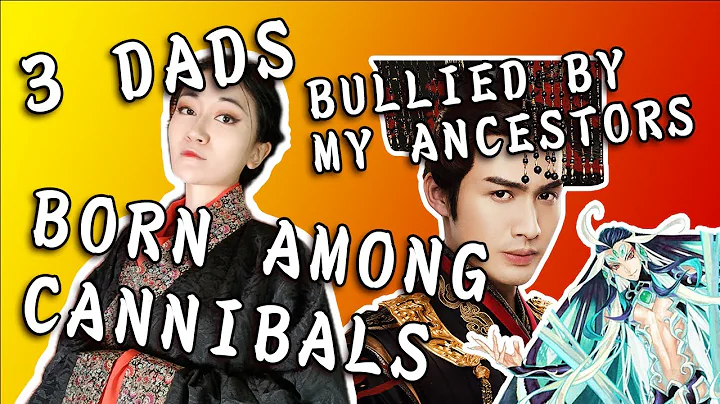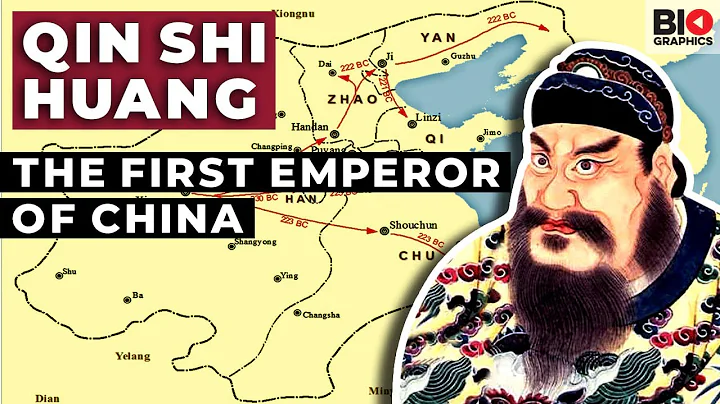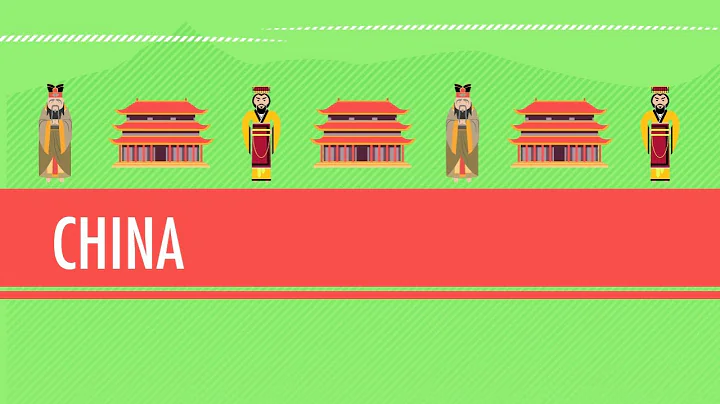There are more than 400 emperors in Chinese history. From the first emperor Qin Shihuang to the last emperor Puyi , they are all the best people in the world. They have everything they want, and they all use the strength of the whole country. for their enjoyment. But why do most of them have short lives? The average life span of emperors in the past dynasties did not exceed 40 years, and even ordinary people lived longer than them. So what is the reason for their short life?

First, let's look at Qin Dynasty . The Qin Dynasty went through two emperors. Not only was the emperor short-lived, but the dynasty was also short-lived. Qin Shihuang inherited the throne at the age of 13 and became emperor at the age of 39. He reigned for 37 years and lived to the age of 49, which is considered a pass. And Qin II was pitiful. In 207 BC, Hu Hai was forced to commit suicide in Wangyi Palace by Zhao Gao's confidant Yan Le. He only lived to be 24 years old.
Time came to the Han Dynasty, which was a unified dynasty after the Qin Dynasty. It was divided into the Western Han Dynasty and the Eastern Han Dynasty. It experienced a total of 29 emperors and enjoyed the country for 405 years. The average life span of the 29 emperors was only 34 years old. The most famous one is the seventh emperor of the Western Han Dynasty - Emperor Wu of Han Liu Che, who lived to be 70 years old. The most miserable one was Han Shang Emperor Liu Long. When he ascended the throne, he was just a hundred days old and was the youngest emperor to succeed to the throne. However, he died soon after. His posthumous title was Emperor Xiaoshang, and he only lived for two years.

Next is the Three Kingdoms period of melee, and then to the Southern and Northern Dynasties Jin Dynasty . The Jin Dynasty inherited the Three Kingdoms and started the Southern and Northern Dynasties. It was divided into two periods: the Western Jin Dynasty and the Eastern Jin Dynasty. Among them, the Western Jin Dynasty was a unified dynasty in Chinese history, and the Eastern Jin Dynasty was one of the Six Dynasties. The two Jin Dynasties inherited a total of 15 emperors for a total of 155 years. Among these 15 emperors, the average life span is about 35 years old. The longest-lived one is the founding emperor Sima Yan, who died at the age of 55. The shortest one is Emperor Mu of Jin Sima Dan, the fifth emperor of the Eastern Jin Dynasty, who died of illness at the age of 19.
Let’s take a look at the two dynasties closest to us, the Ming and Qing dynasties. The Ming Dynasty was the last unified Central Plains dynasty established by the Han in Chinese history. It experienced 16 emperors and lived for 276 years. The average life span of the Ming Dynasty emperors was about 40 years old. The longest lived person was Zhu Yuanzhang , who lived to be 71 years old. Of course, there are also some who died before they were 40. For example, the famous carpenter emperor Zhu Youxiao was only 23 years old when he died. There was another emperor in the Ming Dynasty who could be said to be the most miserable. He struggled to be the crown prince for 20 years, but he died of exhaustion next to his maids after only one month on the throne.
Qing Dynasty As the last feudal dynasty in history, the lifestyle and health care were much more developed than the previous dynasties. Therefore, the Qing Dynasty also became the dynasty with the longest life span of ancient emperors. But even at the highest level, the average life span of Qing emperors was only over 50 years old. The longest-lived emperor is, of course, Emperor Qianlong. He ascended the throne at the age of 25 and reigned for 60 years. After becoming emperor, he served as Supreme Emperor for three years and four months. He was the emperor who actually held the highest power in the country for the longest time in Chinese history. He was also the emperor in Chinese history. The longest-lived emperor, died at the age of 89. The shortest-lived emperor was Emperor Tongzhi. He ascended the throne at the age of six and died of illness at the age of 19. He served as the throne for 13 years and finished his life in a hurry. From this point of view, for ancient emperors, 40 years old was undoubtedly a threshold. Of course, there are some who live longer among them, but these are just rare. So what was the reason for the emperor's short life? Ancient emperors lived such a luxurious life and lacked nothing. Why did most of them have short lives?

In fact, there are two most important reasons. The first is overwork and too much pressure. In fact, the ancient emperors were not as comfortable and relaxed as we imagined. After all, they carried the fate of the entire country on their shoulders, and they had endless things to deal with every day. Take Yongzheng, the most famous industrious emperor in history, as an example. He was either reviewing memorials or on his way to review memorials every day. He worked overtime until early in the morning almost every day, and only had three or four hours of sleep. At such a high age, No one can bear the intense working conditions. It would be strange if he doesn't get sick.In addition, the medical conditions in ancient times were not developed, and a cold, cold, or cold could kill someone. Therefore, Yongzheng only served as emperor for 13 years before he died of illness due to overwork.

In addition to the great work pressure, the ancient emperors also suffered from psychological pressure that we can't imagine. Although the emperor is the king of a country and enjoys supreme power, it can be said that this is also a high-risk profession. Although he enjoys the highest treatment in the world every day, he also faces the end of being framed at any time. There are also many emperors who died unexpectedly in history. For example, Emperor Yang of the Sui Dynasty Yang Guang was killed by Yu Wenhuaji at the age of 50; Emperor Zhaozong of the Tang Dynasty Li Ye and the last emperor Li Yu were both killed by his ministers Zhu Wen ; Emperor Wen of the Southern Dynasties Liu Yilong ascended the throne in 424 AD and was killed by Prince Shao; during the Sixteen Kingdoms period, after the death of Han Emperor Liu Yuan, Prince Liu He ascended the throne. As a result, his younger brother Liu Cong was unwilling to give up and killed his older brother Liu He and became emperor himself. In addition to being wary of threats from powerful ministers, the emperor also had to keep an eye on penetrating assassins. For example, Qin Shihuang suffered many assassinations in his life. The Jiajing emperor of the Ming Dynasty almost died at the hands of the maid around him. They walk on thin ice and often live in fear. If things go on like this, they will inevitably become suspicious and the pressure will become greater. Coupled with the heavy government affairs, it is understandable that these emperors will not live long.

In addition, the last reason is naturally related to the beauties in the harem. Ancient emperors had three palaces and six courtyards, and a harem of three thousand beauties. They faced so many beauties every day, and they easily became intoxicated. Over time, their bodies would definitely not be able to bear it. The ancient royal family attached great importance to the reproduction of children, so no matter how tired they were from work during the day, they had to go to the harem at night to create children. In history, there are many emperors who ruined themselves due to excessive indulgence. For example, the Emperor Xianfeng of the Qing Dynasty was greedy for beauty. He ignored the wind and rain outside the window at the summer resort. He only wanted to be happy and happy now, and he only wanted to be happy. Heavy burden, she passed away when she was 31 years old.
Compared with the Longqing emperors of the Ming Dynasty, these operations of Xianfeng can be said to pale into insignificance. According to legend, Emperor Longqing spent the rest of his time with his concubines besides taking care of the government affairs. He indulged in women and trusted eunuchs excessively. At the beginning, he had very few concubines in Prince Yu's mansion. However, after becoming the emperor, he began to indulge in women excessively. Officials in the court also tried to persuade him many times, but with little effect. Moreover, due to Emperor Mu Zong's evil deeds, the trend of "betting with men" emerged in the Jiangnan area. Hundreds of concubines were sent to the palace every time during the concubine selection event. The most outrageous thing was that he started taking all kinds of pills. These mysterious operations undoubtedly further damaged his body. In this way, Emperor Longqing, who was only 36 years old, finally died of his own indulgence. But if they can exercise restraint, they won't end up with a short life. What do you think are the most important reasons for the short lifespan of ancient emperors?





















